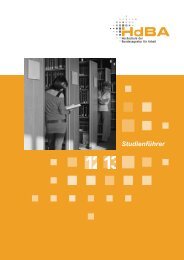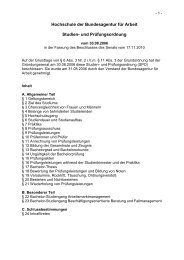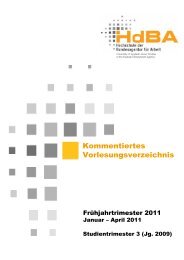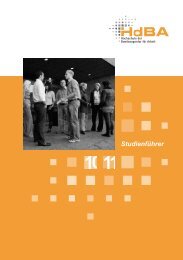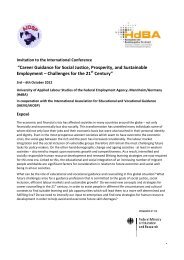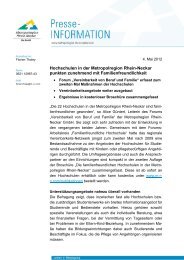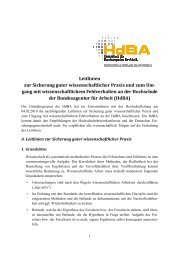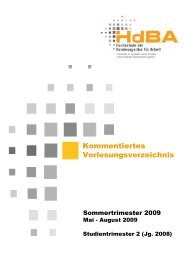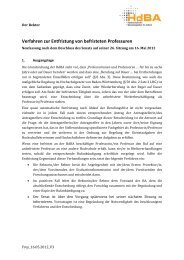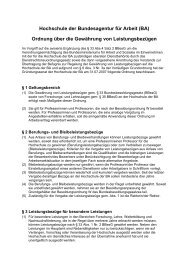Brain Drain - Hochschule der Bundesagentur für Arbeit
Brain Drain - Hochschule der Bundesagentur für Arbeit
Brain Drain - Hochschule der Bundesagentur für Arbeit
You also want an ePaper? Increase the reach of your titles
YUMPU automatically turns print PDFs into web optimized ePapers that Google loves.
�����������������������������������������<br />
���������������������������������������<br />
�<br />
�<br />
4.2 Unit 1: Migration – Short Term and Long Term Perspectives<br />
• The specificity of international careers<br />
• International career planning in European perspectives (Jenschke 2003)<br />
• Short term limits and long term goals of living conditions<br />
A model of expatriates' decisions to quit their assignments - This model explicitly<br />
consi<strong>der</strong>s the role of adjustment, the project-based nature of international<br />
assignments, and the importance of several non-work and family context factors in<br />
this withdrawal process. Consistent with domestic turnover research, multiple<br />
regression analyses indicated that the work-related factors of job satisfaction and<br />
organizational commitment were significant predictors of expatriate withdrawal<br />
cognitions. There was found support for the direct, indirect, and mo<strong>der</strong>ating influence<br />
of non-work satisfaction and several family context variables (i.e., family<br />
responsibility, spouse adjustment, spouse overall satisfaction, and living conditions)<br />
on decisions of expatriates to quit their assignments. (Shaffer & Harrison, 2001)<br />
The assessment of the role of culturally and socio-politically relevant factors in a<br />
client history: relevant generational history (e.g. manner of coming to the country),<br />
citizenship or residency statuses, fluency in standard official language (and other<br />
languages), extent of family support or disintegration of family, availability of<br />
community resources, level of education, change in social status, work history and<br />
level of stress related to acculturation. (Bell, 1990, Arrendodo, 2002)<br />
Checking of the market, economic look out, perspective of career abroad, gains and<br />
losses.<br />
4.3 Unit 2: Elimination of Migration Risks<br />
• Planning and preparation of transition<br />
• Emigration process – native country liabilities<br />
• Job searching, applying and employment contract<br />
• Social support and financial assistance on European and local level<br />
• Legal assistance<br />
87





